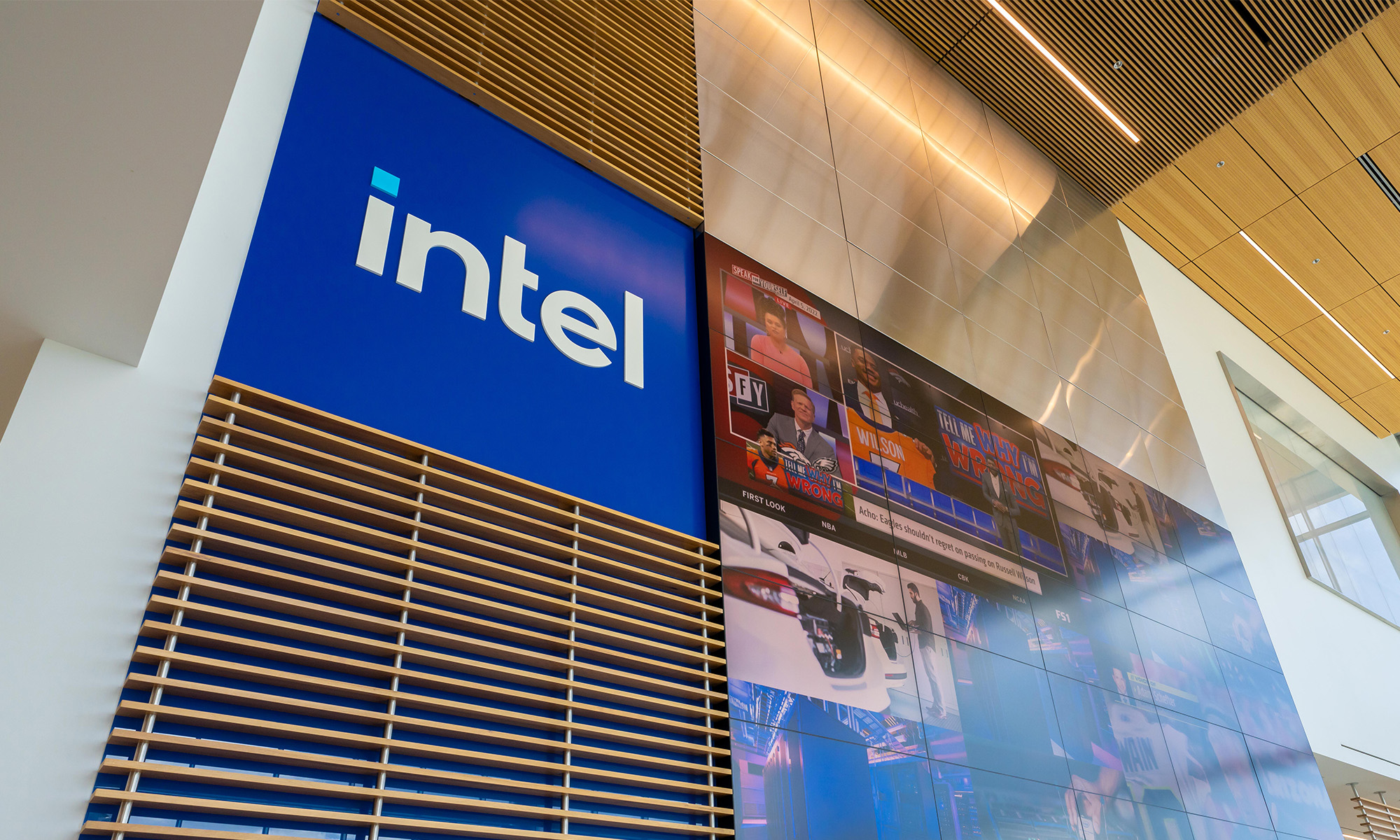Investors in search of value may be surprised to learn a couple of big names still represent outstanding bargains along with solid income. The two rock-solid cheap stocks trading at nearly half their peer group average are tech titans Cisco Systems (CSCO 0.08%) and Intel (INTC 2.34%).
Both industry stalwarts are knee-deep in significant transformations. As so often happens, many investors run out of patience and shun the likes of Cisco and Intel: That's the bad news for shareholders. The good news for those with some patience and a long-term perspective is that Cisco and Intel offer outstanding value.

Image source: Cisco.
The new Cisco
Not everyone is onboard with Cisco's recent announcement to acquire collaboration software provider BroadSoft for $1.9 billion. But BroadSoft's suite of cloud-based software collaboration offerings are right in line with CEO Chuck Robbin's push to transition away from legacy networking switches and routers.
The plan is to focus on cloud software solutions and data center infrastructure-as-a-service, which in turn generates recurring revenue. Ongoing sources of revenue and streamlining operations are at the heart of Cisco's transition. Despite some negativity surrounding Cisco as its fiscal 2018 first-quarter earnings release nears, Robbins' efforts are beginning to pay off.
Much of the news surrounding Cisco's fourth-quarter results was its 4% drop in revenue to $12.1 billion -- not to mention the subsequent 3% decline in earnings-per-share to $0.61, excluding one-time items. For investors who follow Cisco, both the top and bottom line results should have been no surprise.
Shifting to a recurring revenue model takes time, particularly for a company the size of Cisco: And therein lies the opportunity. Lost in the shuffle last quarter was that 31%, equal to $3.75 billion, of Cisco's total revenue is recurring, up from 27% a year ago. And with deferred revenue climbing 12% to $18.5 billion, "driven largely by subscription-based and software offerings," Cisco's ongoing revenue growth will continue.
As for Robbins' promise to become a leaner, more efficiently run company Cisco's adjusted operating expenses dropped 7% last quarter. Priced at a mere 18.1 times past earnings, Cisco is well below its peer average of 34.4. Toss in its impressive 3.3% dividend yield, and Cisco easily makes a list of rock-solid cheap stocks.

Image source: Intel.
All signs all point to "yes"
Similar to Cisco, Intel CEO Brian Krzanich also made the decision to transform the one-time PC chip king to fast-growing, cutting-edge new markets. And it's working. Intel's new focus includes the Internet of Things (IoT), powering the world's cloud data centers, artificial intelligence, and virtual reality.
Yet like Cisco, Intel remains an absolute bargain relative to its peers. Trading at just 16.4 times earnings, Intel stock is priced well below its peer group average of 26.9 times earnings. Intel's 2.3% dividend yield also tops its peer's 1.8% average payout.
In Intel's case, its cheap stock may not be a bargain much longer, considering it's up 17% in the past month following its stellar third quarter. Excluding its now divested McAfee unit, revenue climbed 6% to $16.1 billion. What made Intel's quarter even more impressive is that it grew the top line despite flat PC-related sales of $8.9 billion.
The lack of PC revenue growth was more than made up by a 15% increase in "data-centric businesses," not to mention strong IoT and memory sales. Data center-specific revenue into cloud data centers climbed 7% to a record $4.9 billion. Not to be outdone, IoT revenue rose 23% to $849 million, which also set a new Intel record.
Intel's memory solutions unit grew an outstanding 37% to $891 million, yet another record-breaker. Finally, programmable solutions sales -- a separate but key component of Intel's IoT efforts -- jumped 10% to $469 million. Combined, Intel's non-PC divisions accounted for $7.1 billion, equal to 44%, of total revenue. Better still, Intel's revenue growth was accomplished while paring 10.5% off operating expenses.
Intel is growing where it counts, it's cheap with a solid dividend, and it's becoming more efficient: What's not love?







